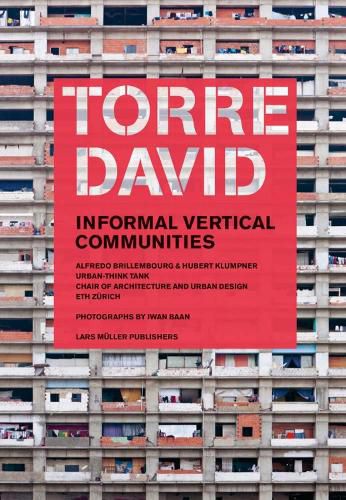Readings Newsletter
Become a Readings Member to make your shopping experience even easier.
Sign in or sign up for free!
You’re not far away from qualifying for FREE standard shipping within Australia
You’ve qualified for FREE standard shipping within Australia
The cart is loading…






Torre David, a 45-story skyscraper in Caracas, has remained uncompleted since the Venezuelan economy collapsed in 1994. Today, it is the improvised home to more than 750 families living in an extra-legal and tenuous squat, that some have called a vertical slum.
Urban-Think Tank, the authors of TORRE DAVID: INFORMAL VERTICAL COMMUNITIES, spent a year studying the physical and social organization of this ruin-become home. Richly illustrated with photographs by Iwan Baan, the book documents the residents’ occupation of the tower and how, in the absence of formal infrastructure, they organize themselves to provide for daily needs, with a hair salon, a gym, grocery shops, and more. The authors of this thought-provoking work investigate informal vertical communities and the architecture that supports them and issue a call for action: to see in informal settlements a potential for innovation and experimentation, with the goal of putting design in service to a more equitable and sustainable future. 406 illustrations
$9.00 standard shipping within Australia
FREE standard shipping within Australia for orders over $100.00
Express & International shipping calculated at checkout
Stock availability can be subject to change without notice. We recommend calling the shop or contacting our online team to check availability of low stock items. Please see our Shopping Online page for more details.
Torre David, a 45-story skyscraper in Caracas, has remained uncompleted since the Venezuelan economy collapsed in 1994. Today, it is the improvised home to more than 750 families living in an extra-legal and tenuous squat, that some have called a vertical slum.
Urban-Think Tank, the authors of TORRE DAVID: INFORMAL VERTICAL COMMUNITIES, spent a year studying the physical and social organization of this ruin-become home. Richly illustrated with photographs by Iwan Baan, the book documents the residents’ occupation of the tower and how, in the absence of formal infrastructure, they organize themselves to provide for daily needs, with a hair salon, a gym, grocery shops, and more. The authors of this thought-provoking work investigate informal vertical communities and the architecture that supports them and issue a call for action: to see in informal settlements a potential for innovation and experimentation, with the goal of putting design in service to a more equitable and sustainable future. 406 illustrations